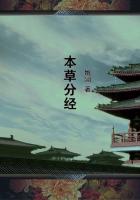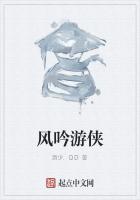There is an old-time toast which is golden for its beauty. "when you ascend the hill of prosperity may you not meet a friend."--Pudd'nhead Wilson's New Calendar.
The next picture that drifts across the field of my memory is one which is connected with religious things. We were taken by friends to see a Jain temple. It was small, and had many flags or streamers flying from poles standing above its roof; and its little battlements supported a great many small idols or images. Upstairs, inside, a solitary Jain was praying or reciting aloud in the middle of the room. Our presence did not interrupt him, nor even incommode him or modify his fervor. Ten or twelve feet in front of him was the idol, a small figure in a sitting posture. It had the pinkish look of a wax doll, but lacked the doll's roundness of limb and approximation to correctness of form and justness of proportion. Mr. Gandhi explained every thing to us. He was delegate to the Chicago Fair Congress of Religions. It was lucidly done, in masterly English, but in time it faded from me, and now I have nothing left of that episode but an impression: a dim idea of a religious belief clothed in subtle intellectual forms, lofty and clean, barren of fleshly grossnesses; and with this another dim impression which connects that intellectual system somehow with that crude image, that inadequate idol--how, I do not know. Properly they do not seem to belong together.
Apparently the idol symbolized a person who had become a saint or a god through accessions of steadily augmenting holiness acquired through a series of reincarnations and promotions extending over many ages; and was now at last a saint and qualified to vicariously receive worship and transmit it to heaven's chancellery. Was that it?
And thence we went to Mr. Premchand Roychand's bungalow, in Lovelane, Byculla, where an Indian prince was to receive a deputation of the Jain community who desired to congratulate him upon a high honor lately conferred upon him by his sovereign, Victoria, Empress of India. She had made him a knight of the order of the Star of India. It would seem that even the grandest Indian prince is glad to add the modest title "Sir" to his ancient native grandeurs, and is willing to do valuable service to win it. He will remit taxes liberally, and will spend money freely upon the betterment of the condition of his subjects, if there is a knighthood to be gotten by it. And he will also do good work and a deal of it to get a gun added to the salute allowed him by the British Government.
Every year the Empress distributes knighthoods and adds guns for public services done by native princes. The salute of a small prince is three or four guns; princes of greater consequence have salutes that run higher and higher, gun by gun,--oh, clear away up to eleven; possibly more, but I did not hear of any above eleven-gun princes. I was told that when a four-gun prince gets a gun added, he is pretty troublesome for a while, till the novelty wears off, for he likes the music, and keeps hunting up pretexts to get himself saluted. It may be that supremely grand folk, like the Nyzam of Hyderabad and the Gaikwar of Baroda, have more than eleven guns, but I don't know.
When we arrived at the bungalow, the large hall on the ground floor was already about full, and carriages were still flowing into the grounds.
The company present made a fine show, an exhibition of human fireworks, so to speak, in the matters of costume and comminglings of brilliant color. The variety of form noticeable in the display of turbans was remarkable. We were told that the explanation of this was, that this Jain delegation was drawn from many parts of India, and that each man wore the turban that was in vogue in his own region. This diversity of turbans made a beautiful effect.
I could have wished to start a rival exhibition there, of Christian hats and clothes. I would have cleared one side of the room of its Indian splendors and repacked the space with Christians drawn from America, England, and the Colonies, dressed in the hats and habits of now, and of twenty and forty and fifty years ago. It would have been a hideous exhibition, a thoroughly devilish spectacle. Then there would have been the added disadvantage of the white complexion. It is not an unbearably unpleasant complexion when it keeps to itself, but when it comes into competition with masses of brown and black the fact is betrayed that it is endurable only because we are used to it. Nearly all black and brown skins are beautiful, but a beautiful white skin is rare. How rare, one may learn by walking down a street in Paris, New York, or London on a week-day particularly an unfashionable street--and keeping count of the satisfactory complexions encountered in the course of a mile. Where dark complexions are massed, they make the whites look bleached-out, unwholesome, and sometimes frankly ghastly. I could notice this as a boy, down South in the slavery days before the war. The splendid black satin skin of the South African Zulus of Durban seemed to me to come very close to perfection. I can see those Zulus yet--'ricksha athletes waiting in front of the hotel for custom; handsome and intensely black creatures, moderately clothed in loose summer stuffs whose snowy whiteness made the black all the blacker by contrast. Keeping that group in my mind, I can compare those complexions with the white ones which are streaming past this London window now:
A lady. Complexion, new parchment. Another lady. Complexion, old parchment.
Another. Pink and white, very fine.
Man. Grayish skin, with purple areas.
Man. Unwholesome fish-belly skin.
Girl. Sallow face, sprinkled with freckles.
Old woman. Face whitey-gray.
Young butcher. Face a general red flush.
Jaundiced man--mustard yellow.
Elderly lady. Colorless skin, with two conspicuous moles.
Elderly man--a drinker. Boiled-cauliflower nose in a flabby face veined with purple crinklings.
Healthy young gentleman. Fine fresh complexion.















